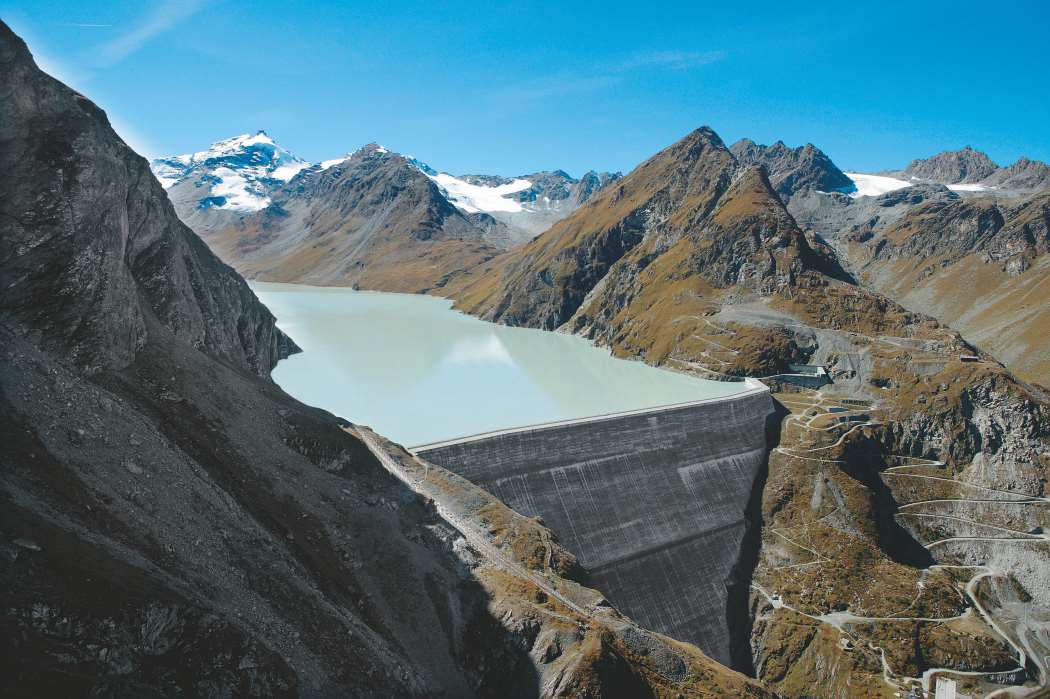Assets
The value chain element Assets contains the Group’s own production and asset trading. It combines Generation and Asset Trading, which jointly execute the commercial strategy. Alpiq successfully manages power plants all over Europe and thus has a tremendous amount of experience in asset management, covering the value chain.

Spotlight: The role of asset-backed trading
For a producer like Alpiq to meet the day-to-day demand for electricity, we need to have a sophisticated asset trading capability. It is a 24/7 business driven by fluctuating demand and supply across all time horizons. Some factors, such as regulatory developments or the phase-out of coal and nuclear, influence demand and market prices several years ahead. Other factors, like the weather, drive demand over a much shorter time frame, and even in real time. The green energy transition with volatile energy production from renewable energy sources like solar and wind requires flexibility. Thanks to our powerful and flexible hydropower and thermal power plants in Switzerland and abroad, Alpiq can be seen as a key enabler of integrating renewable energy sources efficiently into the energy market. We spoke to Christoph Bellin, Head Asset Trading, to find out more about asset-backed trading.
Christoph, why is asset trading so important to the security of supply?
Electricity trading is necessary to ensure a secure and efficient electricity supply. The needs of consumers in the short and long term create price signals on the market. Energy consumption, as well as parts of the power plants – such as the renewables, nuclear, and coal-fired units – can only be controlled to a certain extent. However, other electricity production technologies such as (pumped) storage hydropower, batteries or gas-fired CCGTs can be dispatched very flexibly according to the needs of the market. Our highly flexible asset fleet creates an excellent position for Alpiq in this environment.
So, is it mainly about finding the right mix of power plant profiles and technologies?
Not only, someone to bridge the demand from the market with the capabilities of the powerplants, and this is where Asset Trading plays a crucial role. It is our role to anticipate the price signals from the markets and enable the most efficient use of a power plant for Alpiq. We optimise the dispatch of each production asset for the benefit of Alpiq as a producer, but also for the benefit of the electricity consumers. We achieve this by trading a wide range of products on different market platforms across the entire time horizon from near real-time to several years ahead.
What does a typical day look like on the Asset Trading team?
To put it in simplistic terms, we run a set of optimisation models and algorithms every day to calculate the best possible production schedule (dispatch) for each of the assets in our portfolio, taking into account the price forward curves as well as the given constraints. This input then has to be combined with the relevant risk factors and price scenarios in order to trade the resulting positions on various markets.

Christoph Bellin
Head Asset Trading, Alpiq
What are the risks?
Let me give you an example. In terms of our Swiss production portfolio, we essentially have to contend with an illiquid Swiss market environment given the size of our portfolio. Although we try to hedge as much of our flexible energy production to Swiss customers, we still have a large residual production profile that needs to be optimised and traded with our neighbouring countries due to the lack of liquidity in our domestic market. In this example, we are exposed to a risk in terms of the evolution of the price spread between Switzerland and our neighbours.
Is it really necessary to sell electricity to neighbouring countries? Shouldn’t we focus on serving Swiss needs?
It is important to understand that cross-border trading does serve Swiss needs. Switzerland is not an island and strongly connected to the European power grid. Demand and supply needs change hourly, daily but also seasonally, Switzerland, Alpiq and our neighbourhood countries all benefit from an efficient exchange of energy across borders, as this allows to balance the different needs across a larger geographical area. The combination of Swiss hydro flexibility and cross-border trading is a strength, allowing us for example to preserve water in our hydro reservoirs by importing energy on days with lower prices driven by high renewable production in our neighbouring countries. Likewise, we can export electricity when demand is low in Switzerland. Or take the Swiss hydro reserve for the winter season, for example. Alpiq has contributed substantially to this reserve and cross-border trading played a crucial role here.
You mentioned market liquidity in Switzerland. Is this also a factor?
Yes, certainly. Producers such as Alpiq would often like to trade more in Switzerland, but production needs to match demand. Until now, many consumers in Switzerland have not seen the need or been able to secure their energy supply in the long term. Therefore, if a producer like Alpiq needs to secure the value and reduce the risk of an asset portfolio, it often has little other option than to use the more liquid markets in our neighbouring countries.
In Switzerland, we are very proud of our flexible hydropower. If electricity prices were to rise next week due to cold weather, could we sell the additional demand from our flexible hydro portfolio?
Potentially yes, depending on if the water in the lakes have been sold already at an earlier stage or not. But no doubt, with our diverse and flexible hydropower portfolio we can serve the different needs from electricity customers as well as grid operators by constantly reoptimizing, trading and dispatching the assets in the most optimal way. As the different needs not always match in terms of timing or profile, it is also the role of asset trading to warehouse and offset the residual risks accordingly.
What role will asset trading play in future?
The expansion of renewable energy sources, the increase in electricity demand and the introduction of new technologies will generate even more volatility in the energy markets. Asset trading will play a central role in bridging demand and supply. There are many uncertainties out there, but one thing we can be certain of is that our industry will grow substantially, the competition for talent will increase, and best-in-class technology will be key to staying competitive. Using our skills and capabilities, we will contribute to achieving a more sustainable and cleaner energy ecosystem.
To allow electricity surpluses or shortages to be balanced ahead of delivery, the market is split into different trading platforms according to time frame, e.g.:
- Forward market: where transactions are made from weeks to years ahead of delivery.
- Spot market: where trades are made in a day-ahead time frame.
- Intraday markets: where transactions take place in close to real time.
Transactions are made either on energy exchanges, via bilateral (over-the-counter) contracts with other market participants or with a grid operator such as Swissgrid.
Connecting Alpiq’s production assets to the energy markets by anticipating the risks, prices and opportunities on these different markets is the mission of Alpiq’s Asset Trading unit. The unit is organised into different teams according to the process, the type of asset (e.g. hydro, thermal) and the trading time horizon.